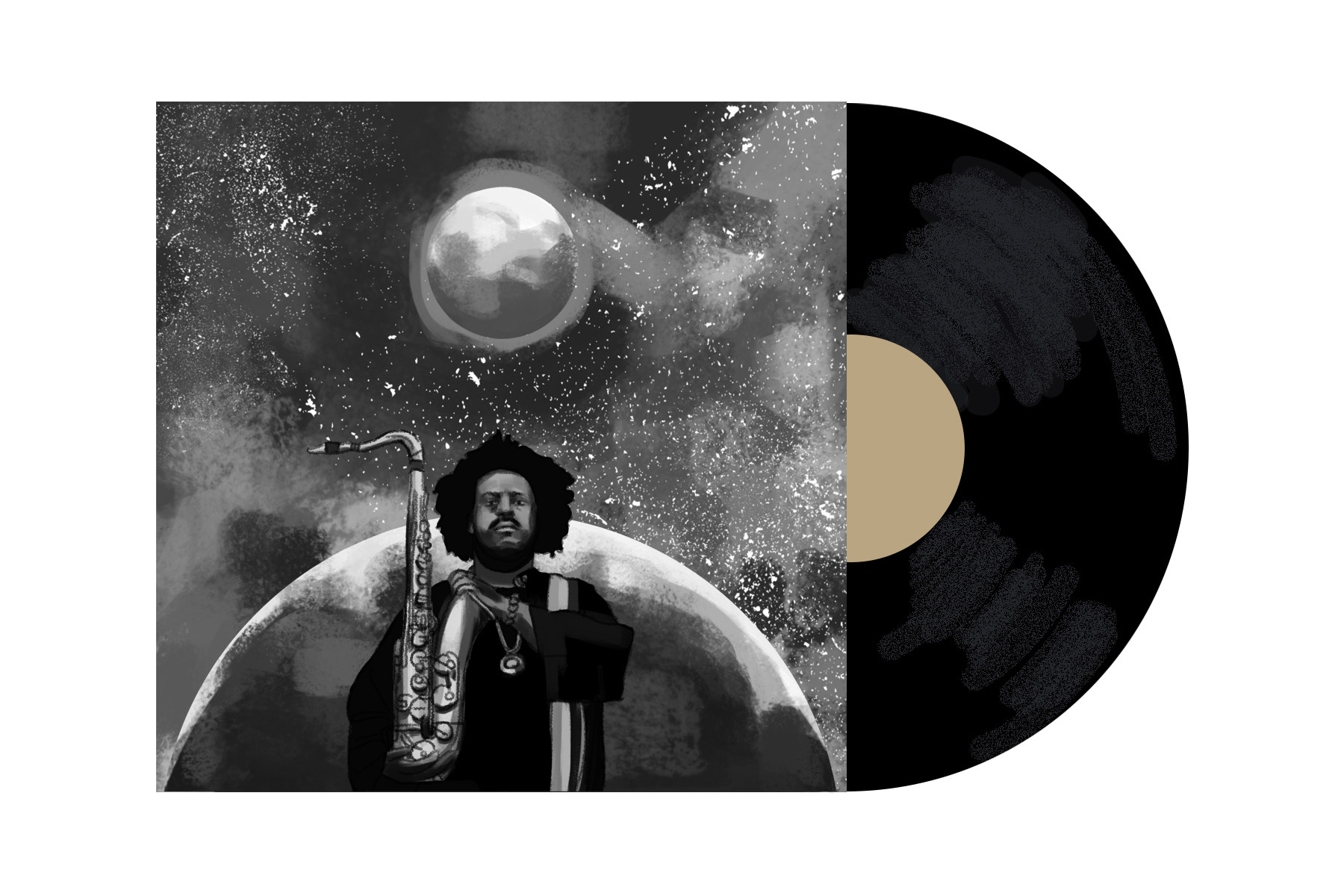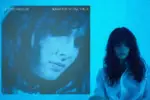There are few saxophonists performing today who can sell out arenas. Few musicians playing jazz on any instrument can draw sizeable crowds. There are perhaps even fewer experimental musicians able to generate enough buzz in the general public to warrant international tours and extensive press coverage. It is challenging for any musician to accomplish one of these feats, yet renowned jazz saxophonist Kamasi Washington manages to pull off all three.
Popular music has largely moved beyond jazz as a creative form, yet Washington has dedicated his nearly 20-year career to reviving it, with Emmy and Grammy nominations to show for his efforts. Collaborating with the likes of Kendrick Lamar, Thundercat and Lauryn Hill, Washington is an interdisciplinary artist who has built a reputation for fusing jazz with other forms of popular music. Although he is often billed as a solo artist, Washington performs alongside numerous instrumentalists who are able to bring his vibrant re-imaginings of jazz standards to life.
In 2015, Washington released his magnum opus, an album titled “The Epic.” Clocking in at just under three hours and pulling from just about every genre of popular music, the project is deserving of its name. A reference to the literary and storytelling tradition that includes Homer’s “Odyssey” and Tolkein’s “Lord of the Rings,” the title evokes incredibly high standards for artistic achievement. The monumental album is Washington’s contribution to this narrative tradition and demonstrates his masterful ability to meld the old with the new, creating captivating music in the process.
Many jazz artists seeking to add a contemporary spin to the form borrow heavily from contemporary music to breathe fresh life into their sound. Washington breaks from this tradition, fusing jazz with R&B, funk and Motown to create his distinctive personal atmosphere. The album’s first track is “Changing of the Guard,” a 12-minute tune that starts off as a pretty formulaic upbeat jazz standard with muted operatic background vocals that sporadically appear and disappear into the swinging drum and bass lines.
The vocals are a consistent element of “The Epic,” creeping out of the heavily instrumented tracks to ascend to upper-range melodic lines. Virtuosic solos by the pianist and trumpet reclaim the musical focus from the vocals at several intervals, offering a return to the classical jazz form. The sporadically repeated melodic line reappears throughout the track with greater intensity each time, creating the sensation that the track is building toward a triumphant climax that is not delivered, with the track instead fading into muted chords. It fully introduces the listener to the style of Washington’s work but indicates that there is far more to come before any sense of resolution is to be delivered.
The album’s first several tracks inform the listener of the album’s sonic novelty, though it is not until almost an hour in that the eclectic mix of sounds fully matures. “The Rhythm Changes” sees Washington lean into R&B and gospel influences, with the organ featuring prominently in the background and guest vocals from Patrice Quinn, who melodically mirrors the instruments in a sequence of verses about emotional perception. Unlike most jazz standards, where the instrumentation dictates the cadence and tune structure, Quinn’s verses are the overarching structural element, allowing for minimal improvisation. At the end of the track, the choral vocals join in with Quinn, audibly singing along in a rare moment of clarity and harmony.
The track has the quality of a 1950s ballad, equal parts personal and grandiose as Washington’s saxophone solo borrows from the simple melody before embarking on a particularly inventive smooth jazz solo. It feels slightly more grounded than the album’s opener, not aspiring to accelerate or build up to a climax, but rather entertain the listener with a fascinating, genre-bending sideshow. The track is the first indication that “The Epic,” as with Washington’s entire discography, is about a bit more than jazz, a style that defies concrete labels.
The first hour of “The Epic” roughly maps onto the first act of a cinematic or literary structure, providing conceptual context and building a musical identity. In the second act, Washington’s personal identity crystalizes, particularly on the track “Henrietta Our Hero.” The track sees Quinn reprise her vocal role, singing an emotional ovation to Washington’s grandmother, for whom the track is titled. Despite the fluctuations of intensity and volume, the track returns to the motif started in the first track with a visceral sensation of constantly ascending toward a musical climax.
The track’s placement in the album’s second act contextualizes this sensation, as it equates to the rising action in an epic poem or novel. Embarking on a passionate solo in the midst of the track, Washington’s saxophone squeaks through quick jazz runs, as if it is calling out to the soul of Washington’s grandmother in the midst of the instrumental cacophony around it.
Interspersed with the traditional jazz lines Washington plays are rhythmic licks that would feel at home on a funk record, a leap in genre that is noticeable yet not out of place. Funk and R&B are genres that share jazz as a common ancestor, and the fusion that Washington facilitates is an homage to the lineage of popular music. As Quinn’s vocals return near the end of the track, Washington follows her melodic line with his saxophone, allowing Quinn to speak directly for him as the two artists parallel each other. The ability to convey deep emotional meaning without saying a word is one of Washington’s hallmark traits, and one that features prominently on the album.
Imitation is said to be the greatest form of flattery, and for an artist like Washington, quoting sources of inspiration directly in his music is a way of bringing a newfound artistry to the sounds that motivated his career. The third to last track of “The Epic” is a jazz reimagining of “Clair de Lune,” the famous movement from Claude Debussy’s “Suite bergamasque.” Opening with a piano line reminiscent of Debussy’s original composition, the melody is taken up by Washington and his saxophone in a heavily swung style, with a gospel organ serenading the listener beneath him. It is a particularly soulful interpretation of a melodic line that is often associated with muted feelings of solitude.
The track enters its most imaginative form almost exactly at its midpoint, with an ascending piano and choral line that has the otherworldly feel of an old science fiction theme. The reimagining allows Washington to thematically reference the moon, with a futuristic jazz track that brings to mind space travel and exploration. The track is powerful because it both references a familiar melody that the listener can digest, yet surprises at almost every turn as Washington marries the classical style of the tune to his unique brand of experimental fusion jazz. A somber atmosphere is slowly built throughout the track as the album winds down, offering a sobering resolution to an incredibly rich project.
It is hard to imagine how a three-hour-long album can feel resolved too quickly, but that is precisely the sensation that lingers as “The Epic” fades out. Washington leads the audience on a complete musical journey that feels concise despite its length due to its ceaseless intensity. The album is remarkable not only for its inventiveness, but the degree to which it captures the essence of its creator. Washington is humanized through the album despite his vocal silence, instead using his saxophone to emote. “The Epic” is a triumphant contemporary jazz record because it fully embodies the character of a concept album while following the form of a genre that largely defies clear-cut identity or structure. There are few musicians who have worn as many hats and spread their artistry through as many channels as Kamasi Washington. He will undoubtedly leave behind a career befitting his masterpiece’s title, for there is no greater musical epic than his transformative discography.


















